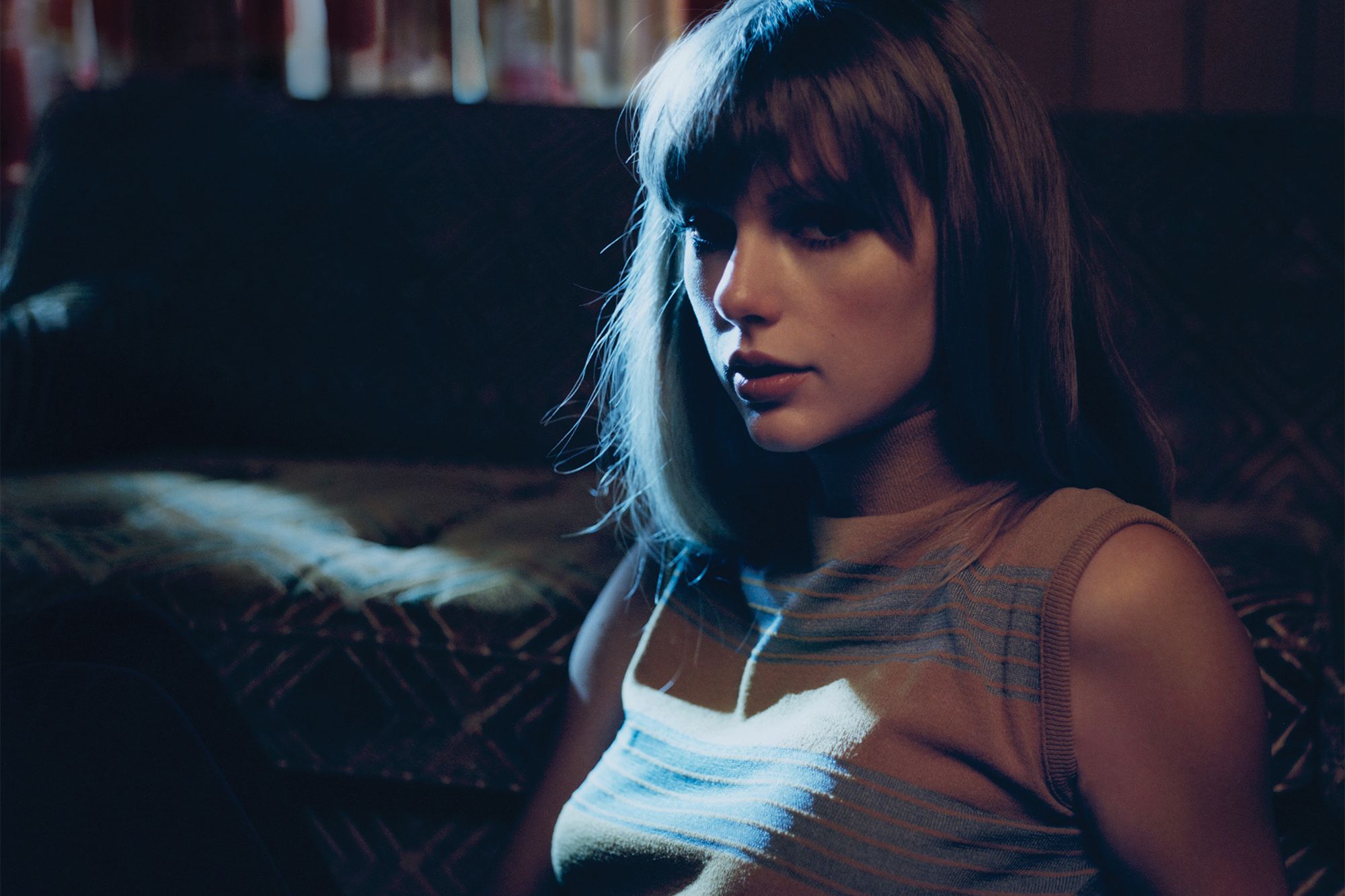Move over, "1989": "Midnights" is the new pop Bible

A beautiful fusion of Taylor Swift’s unrivaled lyrics and pop perfection, Midnights is best described by Swift herself: “a collection of music written in the middle of the night, a journey through terrors and sweet dreams.” She truly “meets herself” on this body of work, reflecting on the contrasts between her own self-image and public perception. Every song is unique, yet the album flows as a cohesive body of work. Midnights is not a slap in the face like reputation, or content and sweet like Lover, but pensive and achy. It pays homage to Lorde’s Melodrama, hence Jack Antonoff’s genius production, and even echoes Billie Eilish and Maggie Rogers, but every song is still quintessential Swift.
Midnights begins with a bang. Track 1, “Lavender Haze,” one of the most sparkling songs on the album, sets the tone with an ad-libbed “Meet me at midnight” by Swift and thundering synth. The track explains the scrutiny she faces from her unavoidable public relationship, but how she just wants to stay in the “lavender haze” not giving a damn. It cleverly explains the anxieties and upsets to be described on Midnights, but how despite this she has found happiness from love, brushing away irrelevant pests. It is a pop song through and through, with its own flair and quirks – a description that describes the entirety of Midnights. Songs like “Karma,” “Bejeweled,” and “Paris” carry the sparkle of “Lavender Haze,” yet the entire album showcases Swift’s unmatched songwriting capabilities more than any of her other pop albums.
“Maroon,” the best song on Midnights, and it rumbles exactly as the lyrics sound. The booming production and Swift’s belting vocals sounds like looking up at a maroon sky; you can feel her despair and sorrow. It is textbook Swift: a genius breakup song describing the most niche feeling you could never put into words on your own, yet continuing to build on her past excellence. Swift further exemplifies her virtuosity on “Question…?” where she subtly samples her own record “Out Of The Woods,” perhaps connecting the songs through a shared scenario or emotion.
Next is “Anti-Hero:” it’s so powerful, you’re forced to feel bad for the most famous woman in the world. Swift gives into the running “Taylor Swift should write a song called I’m the problem” tweet with the chorus: “It’s me, hi, I’m the problem, it’s me.” She explains how she has trouble feeling like a real person, everyone making her out to be larger-than-life, and has never trusted herself (“did you hear my covert narcissism / I describe as altruism / like some kind of congressman”). Her anxiety and breathlessness shine on the bridge, where her vocals resound the most. The production feels bland at times, slightly overdone with some excess echoes, and some lyrics almost feel like this was crafted to be the “TikTok song,” but the tune is catchy and gives a special look into Taylor’s insecurities. This overly-glitzy production is repeated in “Bejeweled,” feeling forced and clunky, and “Midnight Rain,” which would be near-perfection if just a couple synths were scaled back.
There are zero skips on Midnights, but the most disappointing part of my first listen was “Snow on the Beach (featuring Lana del Rey),” and not just because of Lana’s lack of solo vocals. The production is pretty, and the lyrics sweet, but compared to others on the album it falls flat. It certainly doesn’t hold a candle to songs like “Maroon” or “Mastermind.” It feels like a weaker retelling of Swift’s classic “Enchanted” from Speak Now, and there was no need for Swift to reinvent the wheel with that archetype. “Snow on the Beach,” however, was beat out by “Bejeweled” for the weakest song on the album. This track is a rediscovery of Swift’s inner shine after a toxic relationship. Lyrics like “some guy said my aura’s moonstone just ‘cause he was high” and “sapphire tears on my face sadness became my whole sky” roll deliciously off the tongue, but some start to feel staggered, lacking, and clash with the production: “putting someone first only works when you’re in their top five.”
One of the best parts of Midnights are the “camp” songs, whether Swift intended for them to be so or not. “Karma” and “Vigilante Shit” are a burst of fun. “Karma” is peak bubblegum pop, Swift’s declaration of love for her life: her boyfriend, her cats, and a simple breeze in her hair on the weekend. It is an incredibly clever song, produced perfectly for its pure joy, and one of the top three best songs on the album. “Vigilante Shit” is the bad bitch anthem of Midnights. Swift plays into the beloved reputation antagonist caricature with lyrics like “drawing the cat eye sharp enough to kill a man” and reminding fans to “[not] get sad, get even.” Mysterious lyricism and deep bass create the love child of “Look What You Made Me Do” and some of Billie Eilish’s work. Swift’s finest work is when she leans into a character, as she has with “Blank Space” and “Speak Now” in her earlier eras. “Vigilante Shit” and “Karma” are more nuanced examples of these fun exaggerations of her life.
“Would’ve, Could’ve, Should’ve,” “Sweet Nothings,” “Labyrinth,” and “The Great War” are Midnight’s finest lyrical works. “Would’ve” is the grown-up version of “Dear John” and one of Swift’s most exquisite breakup songs. “Bigger Than The Whole Sky” tells the tearful story of a mother who miscarried, filled with heart-wrenching metaphors. These songs feel like Swift going back to her roots, the songwriting shining and the production appropriate.
Midnights has upstaged 1989 as Swift’s finest pop work. She has grown into her insecurities, balances anxiety with maturity and grace, and appreciates her life for everything it has become. She weaves folklore’s depth with Lover’s fun and Fearless’s authenticity, pouring her entire self into the beautiful tapestry of Midnights.